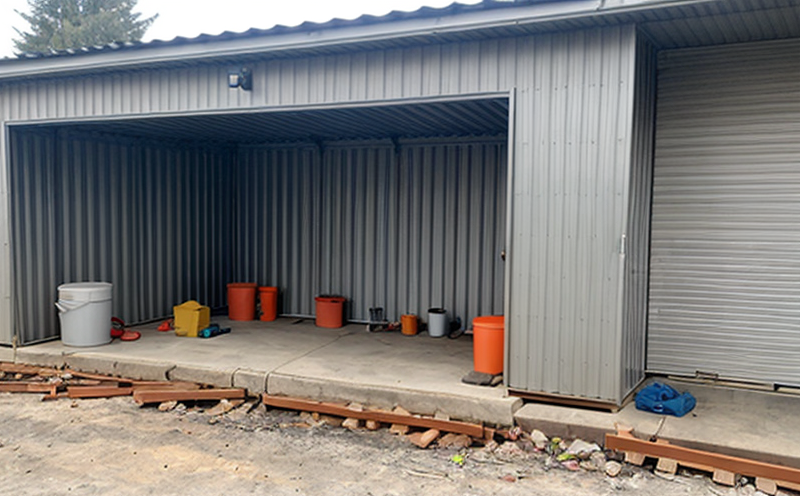Impact of temperature on load bearing capacity
The Crucial Role of Temperature in Load Bearing Capacity Unlocking the Secrets with Eurolabs Laboratory Services
As a business owner or engineer, youre well aware of the importance of ensuring that your products and structures can withstand various environmental conditions without compromising their integrity. One critical aspect to consider is the impact of temperature on load bearing capacity. This phenomenon may seem straightforward, but its effects are far-reaching and can be devastating if not properly assessed.
Eurolabs laboratory services specialize in evaluating the load-bearing properties of materials under different temperature conditions. By understanding how temperature affects your product or structure, youll be able to make informed decisions that safeguard your business, reputation, and most importantly, public safety.
What is Impact of Temperature on Load Bearing Capacity?
The impact of temperature on load bearing capacity refers to the change in a materials ability to withstand loads under varying temperature conditions. This phenomenon is influenced by the thermal expansion and contraction of materials, which can lead to changes in their mechanical properties, such as strength, stiffness, and resilience.
When a material is subjected to heat or cold, its molecules gain kinetic energy and move more rapidly, causing it to expand or contract. This expansion and contraction affect the materials internal structure, leading to changes in its load-bearing capacity. For instance
Metal alloys may become weaker at high temperatures due to thermal softening.
Plastics and composites might exhibit increased brittleness and reduced impact resistance at low temperatures.
Why is Understanding Temperature Effects on Load Bearing Capacity Essential for Businesses?
In todays competitive market, businesses must prioritize product reliability, durability, and safety. Ignoring the temperature effects on load bearing capacity can lead to catastrophic consequences, such as
Product failures during shipment or storage.
Structural collapses due to inadequate material properties.
Economic losses resulting from recalls, repairs, or replacements.
By assessing the impact of temperature on load bearing capacity, businesses can
Optimize product design and manufacturing processes.
Ensure compliance with regulatory standards and industry guidelines.
Develop targeted quality control measures to minimize risks.
The Advantages of Using Eurolabs Laboratory Services
Eurolab offers a comprehensive range of laboratory services that cater to various industries, including construction, aerospace, automotive, and more. Our experts employ state-of-the-art equipment and methodologies to evaluate the load-bearing properties of materials under controlled temperature conditions. The benefits of partnering with Eurolab include
Accurate and Reliable Results Our laboratories are equipped with precision instruments and calibrated testing machines, ensuring accurate and reliable results.
Comprehensive Testing Services We offer a wide range of tests, including tensile, compressive, flexural, impact, and creep tests, under various temperature conditions.
Expert Consultation and Analysis Our experienced team provides in-depth analysis and expert consultation to help you understand the implications of temperature effects on load bearing capacity.
Rapid Turnaround Times We strive to deliver results quickly, allowing you to make informed decisions promptly.
Key Benefits of Understanding Temperature Effects on Load Bearing Capacity
Here are some key benefits of assessing the impact of temperature on load bearing capacity
Reduced Product Failures By identifying potential weaknesses, you can design and manufacture products that are more resistant to temperature-induced failures.
Improved Safety Compliance with regulatory standards and industry guidelines ensures that your products meet or exceed safety expectations.
Increased Efficiency Understanding temperature effects enables you to optimize production processes, reducing the risk of costly rework or recalls.
Enhanced Reputation Demonstrating a commitment to quality and safety through thorough testing and analysis can strengthen your brand reputation.
Frequently Asked Questions (FAQs)
Q What types of materials can be tested for impact of temperature on load bearing capacity?
A Our laboratories are equipped to test a wide range of materials, including metals, plastics, composites, ceramics, and more.
Q How do I prepare my samples for testing?
A Please refer to our sample preparation guidelines or consult with one of our experts to ensure your samples meet the required standards.
Q What is the typical turnaround time for test results?
A Our standard turnaround times vary depending on the type of test, but we strive to deliver results within 24-48 hours.
Q Can I request customized testing services to suit my specific needs?
A Yes, our team will work closely with you to develop a tailored testing program that meets your unique requirements.
Conclusion
The impact of temperature on load bearing capacity is a critical aspect of material science that cannot be ignored. By partnering with Eurolabs laboratory services, businesses can unlock the secrets of their materials and make informed decisions that safeguard their products, reputation, and public safety. With our comprehensive range of testing services and expert consultation, youll be empowered to optimize your production processes, ensure compliance, and reduce the risk of product failures.
Dont wait until its too late contact Eurolab today to learn more about how we can help you navigate the complex world of material science and ensure that your products are built to last.




